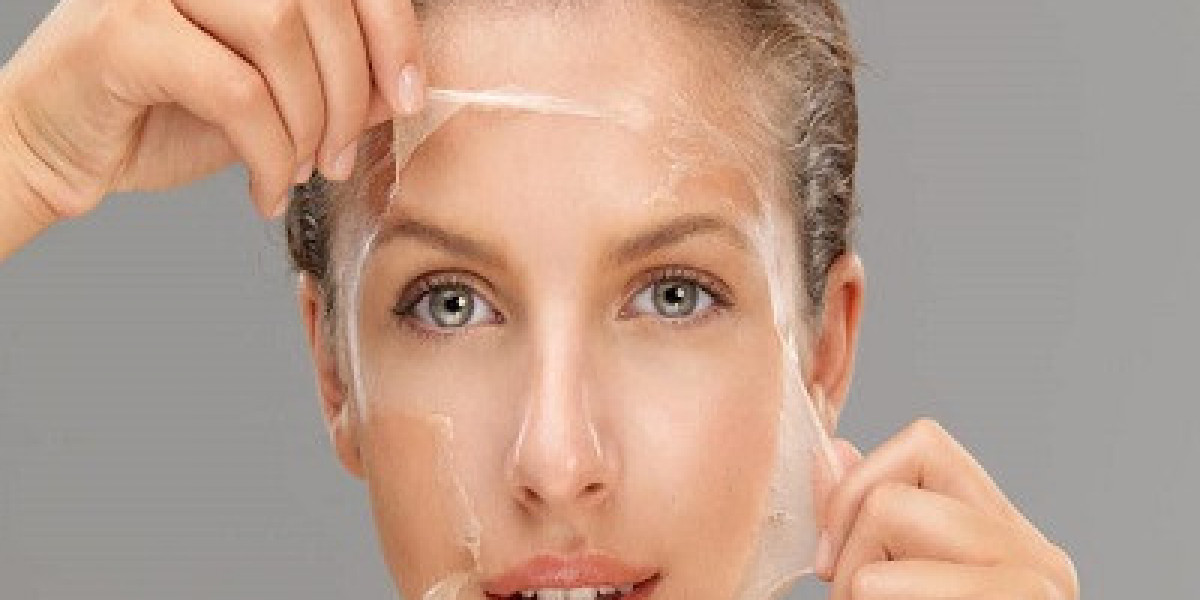Chemical peels are a widely sought-after cosmetic procedure designed to improve skin texture, reduce pigmentation, treat acne scars, and promote a youthful appearance. However, not every skin type reacts the same way to chemical peels. Determining whether you are a good candidate for this treatment requires understanding your skin’s unique characteristics and how it responds to exfoliation and chemical agents. If you are considering professional treatment, Chemical Peels in Islamabad offered by expert dermatologists can guide you through the right approach for your skin.
This blog discusses how to assess your skin type and what factors influence your suitability for chemical peels. Understanding this will help you achieve the best results safely.
What Are Chemical Peels?
Before diving into skin type suitability, it is important to understand what chemical peels involve. A chemical peel is a cosmetic procedure that uses a chemical solution to exfoliate the outer layers of the skin. This process promotes the growth of new, healthier skin cells, resulting in smoother, brighter skin and a reduction in visible imperfections like wrinkles, scars, and pigmentation.
There are different types of chemical peels—superficial, medium, and deep—each designed for specific skin concerns and types. The depth and strength of the peel depend largely on the condition and resilience of your skin.
Why Is Skin Type Important for Chemical Peels?
Skin type plays a crucial role in determining how well your skin will tolerate a chemical peel and how effectively it will respond to the treatment. Using a peel that is too strong for your skin type may cause irritation, redness, hyperpigmentation, or even scarring. Conversely, a peel that is too mild may not provide the desired results.
Here are the primary skin types and how they generally react to chemical peels:
Normal Skin: Generally tolerant to most types of peels and typically experiences faster recovery.
Dry Skin: May need milder peels because dry skin can become easily irritated and flaky post-treatment.
Oily Skin: Often responds well to chemical peels, especially if acne-prone, but requires careful selection to avoid excessive dryness.
Combination Skin: May require a customized approach focusing on different areas of the face.
Sensitive Skin: Requires the gentlest peels and longer recovery periods to prevent adverse reactions.
Dark Skin (Fitzpatrick Skin Types IV-VI): Needs careful selection to avoid pigmentation issues and may benefit from specific peel formulations designed for darker tones.
How to Perform a Skin Type Test for Chemical Peels
To determine if you are a good candidate for a chemical peel, dermatologists typically perform a skin assessment that includes the following steps:
1. Visual Examination
The dermatologist inspects your skin for signs of sensitivity, texture irregularities, pigmentation, and damage. They also note any areas prone to acne or excessive oiliness.
2. Skin History Review
You will be asked about your skincare routine, any previous treatments, allergies, and medical history. Certain conditions such as eczema, psoriasis, or recent isotretinoin (Accutane) use may affect your suitability.
3. Fitzpatrick Skin Type Classification
This classification helps identify your skin’s reaction to sun exposure. It ranges from Type I (very fair skin, always burns) to Type VI (deeply pigmented dark skin, rarely burns). The Fitzpatrick type helps in choosing the right peel strength and type.
4. Patch Test
A small area of skin may be tested with the chemical peel solution to observe any adverse reaction before applying it to the entire face.
Who Is a Good Candidate for Chemical Peels?
Good candidates typically have the following characteristics:
Healthy skin without active infections or severe skin conditions.
Realistic expectations about the results.
No recent sunburn or excessive sun exposure.
No history of allergic reactions to peel ingredients.
No ongoing use of medications that cause photosensitivity or skin thinning (unless cleared by a doctor).
Individuals seeking treatment for fine lines, acne scars, uneven skin tone, or mild pigmentation often benefit the most. Even those with oily and acne-prone skin frequently find chemical peels helpful for reducing breakouts and clogged pores.
When Chemical Peels May Not Be Recommended
Chemical peels are generally safe but may not be suitable for everyone. Contraindications include:
Pregnant or breastfeeding women (some peel ingredients may be unsafe).
Active cold sores or skin infections.
History of keloid scars or poor wound healing.
Recent use of isotretinoin (usually requires a waiting period of 6-12 months).
Very sensitive or fragile skin that reacts poorly to topical treatments.
Preparing Your Skin for a Chemical Peel
Once your dermatologist confirms that you are a good candidate, they will guide you on how to prepare your skin:
Avoid sun exposure and tanning for at least two weeks prior.
Stop using retinoids, exfoliants, or harsh skincare products as advised.
Maintain a gentle skincare routine with moisturizers and sunscreen.
Follow any pre-peel regimen provided by your dermatologist to improve skin condition.
Proper preparation reduces the risk of complications and enhances the peel’s effectiveness.
What to Expect After a Chemical Peel
Post-peel care depends on the peel’s strength but generally includes:
Skin redness, peeling, and dryness for several days.
Avoiding sun exposure and applying broad-spectrum sunscreen.
Using gentle skincare products to aid healing.
Avoiding picking or scratching peeling skin.
Your dermatologist will provide specific instructions tailored to your skin type and treatment.
Conclusion
Determining whether you are a good candidate for a chemical peel begins with understanding your skin type and overall skin health. A thorough skin type test and professional consultation ensure that the right peel is chosen, maximizing benefits while minimizing risks.For those in Islamabad looking for expert guidance and customized chemical peel treatments, the SKN Cosmetics clinic offers specialized services designed to match your skin’s unique needs.










